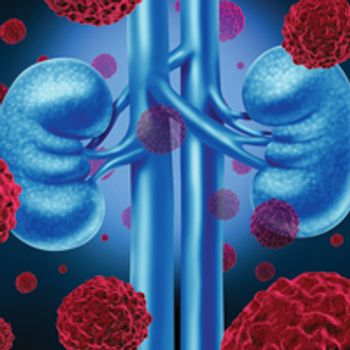
More Stage I cancers were diagnosed after the passage of the Affordable Care Act (ACA), also known as Obamacare, within five screenable disease types: colorectal cancer, female breast cancer, cervical cancer, lung cancer, and prostate cancer).


More Stage I cancers were diagnosed after the passage of the Affordable Care Act (ACA), also known as Obamacare, within five screenable disease types: colorectal cancer, female breast cancer, cervical cancer, lung cancer, and prostate cancer).

The FDA has granted approval to pembrolizumab (Keytruda) for the treatment of patients with locally advanced or metastatic urothelial carcinoma.

The FDA has granted accelerated approval to avelumab (Bavencio) for the treatment of patients with locally advanced or metastatic urothelial carcinoma.

ASCO has updated their guidance on the use of second-line hormonal therapy for chemotherapy-naive patients with castration-resistant prostrate cancer (CRPC).

The FDA has granted accelerated approval for the PD-L1 inhibitor durvalumab for the treatment of locally advanced or metastatic urothelial carcinoma.

The Food and Drug Administration (FDA) granted an accelerated approval to atezolizumab (Tecentriq) to be used as a frontline treatment for cisplatin-ineligible patients with locally advanced or metastatic urothelial carcinoma (mUC).

There may be a shift away from the USPSTF's opposition to routine PSA screening for prostate cancer in some men.

A recent review has found substantial evidence linking androgen deprivation therapy (ADT) to dementia in patients with prostate cancer.

With antiretroviral drugs easing the burden of AIDS-defining cancers in HIV-positive patients, the most common cancers in this population are expected to shift to those associated with aging.

A shorter length of sleep may lead to an increased risk of death from prostate cancer, according to a recent study presented at the 2017 AACR Annual Meeting.

Fewer people are dying from cancer than years ago, according to a recent study.

Alyson Moadel-Robblee, PhD, discusses what keeps male patients with prostate cancer from seeking out counseling and therapy.

A recent study found that the genomic-based test Decipher can predict metastasis and prostate cancer-specific mortality from diagnostic biopsy specimens for patients with intermediate- and high-risk prostrate cancer.

Leslie R. Schover, founder of the Will2Love online resources, discusses the sexual health and fertility issues that can come as a result of cancer treatment, and how these issues can be managed. Join us for our #CureConnect tweetchat, Tuesday 2/21, on this topic.

DNA from circulating tumors in patients with metastatic castraction-resistant prostate cancer (mCRPC) could assist in personalizing treatment.

A recent study presented at the 2017 Genitourinary Cancers Symposium found that use of antibiotics could damper the efficacy of checkpoint inhibitors, potentially due to the relationship between gut microbiota and antibiotics.

Some patients with metastatic rena cell carcinoma (mRCC) exhibited sustained responses even up to 6 months of being off the immunotherapy treatment.

For patients with recurrent prostate cancer, adding hormonal therapy to post-surgical radiation treatment significantly improves survival, according to a recent study.

The FDA has granted approval for nivolumab (Opdivo) in the treatment of urothelial carcinoma.

Genitourinary cancer expert discusses autoimmune-related adverse events in patients with renal cell carcinoma (RCC).

The antidiabetic agent, pioglitazone, may possibly increase the risk of bladder cancer, according to the FDA.

A recent study looked at the role that patients' stress and anxiety plays in deciding on treatment for patients with prostate cancer.

Expert Michael Morris, MD, discusses the current and future role of radium-223 dichloride in treatment for patients with metastatic castration-resistant prostate cancer (mCRPC).

Longer intervals between zoledronic acid doses for patients with bone metastases did not result in an increased risk of skeletal-related events (SREs).

Tanya Dorff, MD, explains the developments of chemotherapy in firstline treatment for hormone-sensitive metastatic prostate cancer as well as personalized treatment in this population.